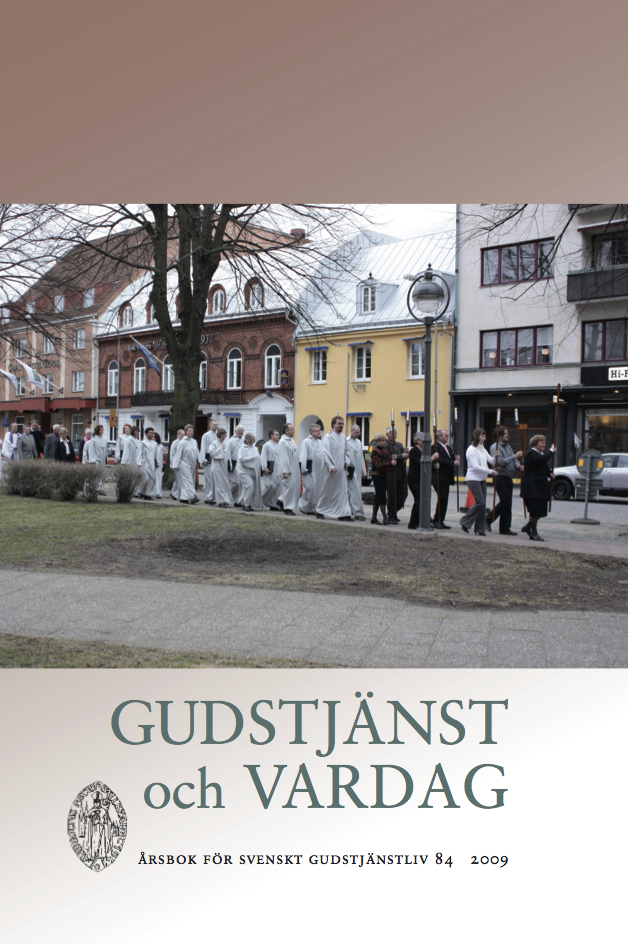Brudar, kosmonauter, riddare och sportfantaster. Tro, gudstjänst och vardagsliv i Svenska kyrkans konfirmandverksamhet
Abstract
Brides, Cosmonauts, Knights and Sport Freaks. Faith, Worship and Everyday Life in the Confirmation Classes of the Church of Sweden
In 2007 the National Church of Sweden Board approved the new guidelines for the Church of Sweden confirmation classes (»Riktlinjer för Svenska kyrkans konfirmandarbete«) – a document which has also been approved by all the dioceses and is therefore the official regulating document for all confirmation teaching in Church of Sweden congregations.
In these guidelines, as in the confirmation pedagogy which they regulate, one can discern the tension of the existential-pedagogical perspective which is based on the student’s own thoughts, reflections, quandaries and expe- riences versus the catechism-based tradition grounded in the principle that there is fundamental factual information about the Christian faith which the confirmation student should learn and be able to describe.
This tension arises and creates problems if the dimensional thinking which prevailed in the religious studies work of the 1900s is used to describe the Lutheran tradition which the Church of Sweden represents. During the 1900’s, the doctrine which belonged to a specific dogmatic-philosophical dimension of religious faith, was considered to be separate from the experiential/emotional dimension of faith. However, this separation is foreign to the Lutheran tradition of the Church of Sweden and implies a misunderstanding of said tradition.
The Lutheran tradition considers faith as something heartfelt, as the very core of a person’s character, thoughts and feelings are influenced. This means that the dogmatic-philosophical dimension cannot be separated from the experiential/emotional dimension in such a way that faith can exist without the emotions of hope and trust. Set against this background, three confirmation books are presented: På riktigt (»For Real«), Con Dios and Via Mystica. Four different models of what it means to be a Christian are presented in these books. These models and the three books are evaluated in regard to the assumption that faith (in the Lutheran tradition) is always something heartfelt. The personality development of 14–15 year olds and their level of maturity – that is, their »heart« – are discussed and given importance in the analysis. The result offers a possible resolution to the tension between the existential-pedagogical perspective and the catechism-based tradition – a tension which has been characteristic of the Church of Sweden’s guidelines and work with confirmation students.
Key words: Church of Sweden, confirmational teaching, Ninian Smart, James Fowler, Göran Bergstrand, Lutheran tradition
Downloads
Published
Issue
Section
License
© the authors, Laurentius Petri Sällskapet för Svenskt Gudstjänstliv and Artos & Norma Bokförlag. Copying and using material from Svenskt Gudstjänstliv for scholarly purposes is permitted as long as the source is indicated. For other uses, please contact the respective author as well as the publisher. Special restrictions may apply to images.


